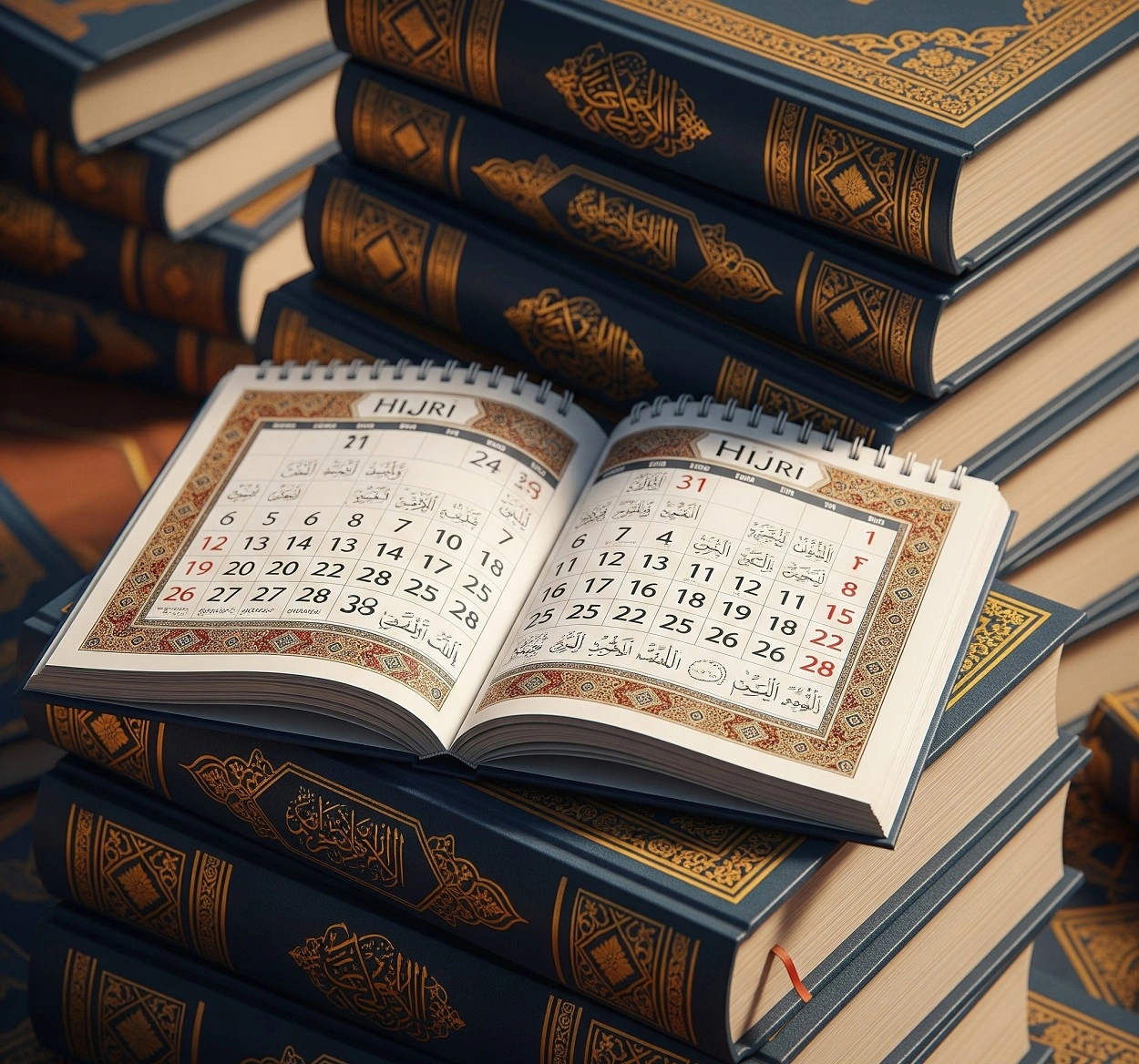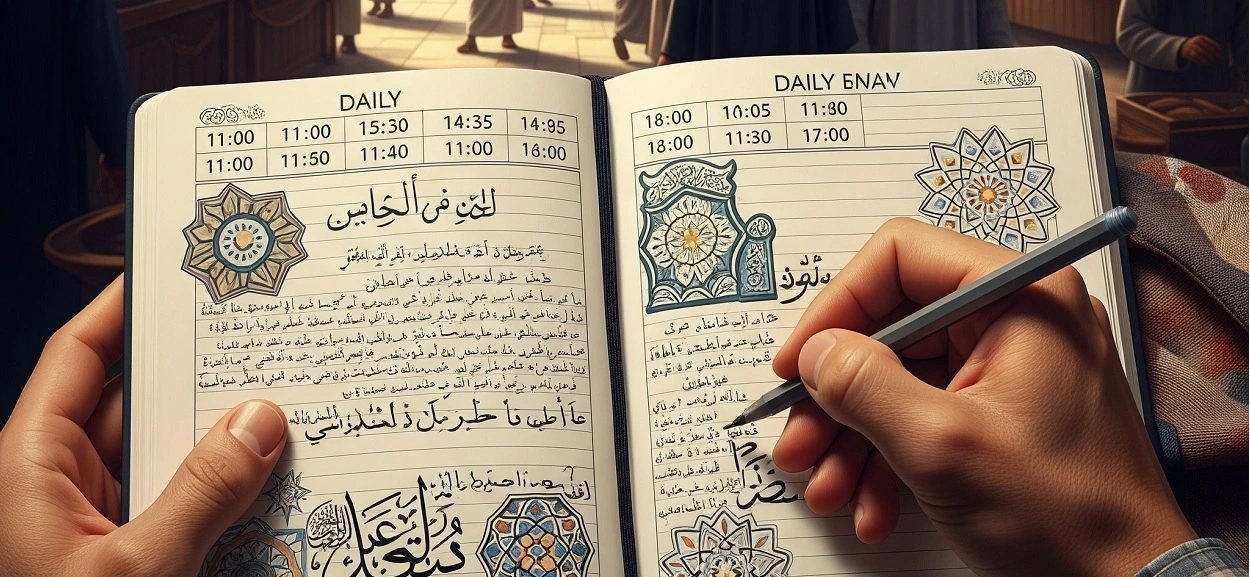FAQ 1 Muharram: Complete Answers About the Islamic New Year and Its Practices
Have questions about 1 Muharram? Find complete answers about when the Islamic New Year is, the history of the Hijri Calendar, Muharram practices, and whether 1 Muharram is a holiday. An authoritative source of information for you.

1 Muharram is a significant moment for Muslims worldwide, marking the beginning of the Islamic New Year. However, various questions often arise regarding this date, from its history to the recommended practices.
We’ve compiled answers to the most common questions about 1 Muharram and the month of Muharram in a concise, clear, and easy-to-understand FAQ format. Let’s dive deeper to gain a comprehensive understanding.
When Is 1 Muharram This Year (1447 AH / 2025 CE)?
1 Muharram 1447 Hijri is expected to fall on Friday, July 25, 2025 CE. This date might slightly shift depending on the rukyatul hilal (new moon sighting) results and the official decision of the government or religious authorities in each country. In Indonesia, the official determination will be announced by the Ministry of Religious Affairs after the Sidang Isbat (Pleiades Session).
What Should Be Done on the Islamic New Year?
The Islamic New Year is a moment for reflection, self-evaluation (muhasabah), and setting new resolutions. Some recommended practices include:
- Self-Reflection (Muhasabah Diri): Pondering your spiritual journey over the past year, evaluating good and bad deeds, and planning for self-improvement.
- Setting New Resolutions: Creating spiritual and personal goals you wish to achieve in the coming year, based on Islamic values.
- Increasing Supplications (Dua): Praying to Allah SWT for blessings, ease, and protection in the new year.
- Enhancing Worship: Starting the year with renewed enthusiasm in performing both obligatory and voluntary acts of worship.
Is 1 Muharram an Eid (Holiday)?
1 Muharram is not an Eid (holiday) in Islam like Eid al-Fitr or Eid al-Adha. There are only two Eids in Islam: Eid al-Fitr and Eid al-Adha. 1 Muharram marks the beginning of the new year in the Hijri Calendar and is more understood as a moment for reflection and spiritual renewal. Therefore, there are no specific Eid prayers or major prescribed celebrations on this date, although Muslims often welcome it with positive activities such as religious gatherings or collective prayers.
How Did the History of the Hijri Calendar Begin?
The history of the Hijri Calendar began during the reign of the second Caliph, Umar ibn al-Khattab (RA), approximately 17 years after the Hijra of Prophet Muhammad (PBUH).
- Background: Before the Hijri calendar, Muslims lacked a structured dating system. They often used major events as reference points (e.g., ‘the Year of the Elephant’ when the Prophet was born). This caused difficulties in state administration, determining prayer times, and transactions.
- Khalifah Umar’s Consultation: Caliph Umar gathered the companions to discuss the need for an Islamic calendar.
- Establishment of the Beginning: After various proposals, it was agreed that the event of the Hijra of Prophet Muhammad (PBUH) from Makkah to Madinah would be the starting point for calculating the years. This was chosen because the Hijra was a crucial turning point in Islamic history, marking the beginning of the strong Muslim civilization.
- Selection of the Month: Although the Hijra occurred in the month of Rabi’ al-Awwal, the month of Muharram was chosen as the first month in the calendar because it is the first month after the Hajj season and is considered a logical start to a new year.
What Are the Practices in the Month of Muharram?
The month of Muharram is one of the four sacred (holy) months in Islam, where the reward for good deeds is multiplied. Here are some important practices in the month of Muharram:
Voluntary Fasting (Sunnah Fast):
- Tasu’a Fast (9 Muharram): It is recommended to fast on the 9th of Muharram as a companion to the Ashura fast and to distinguish oneself from the practice of the Jews. For 1447 AH / 2025 CE, it is expected to fall on Thursday, August 7, 2025 CE.
- Ashura Fast (10 Muharram): This is a highly emphasized fast. Prophet Muhammad (PBUH) said, “Fasting on the Day of Ashura, I hope from Allah that it will expiate the sins of the year before it.” For 1447 AH / 2025 CE, it is expected to fall on Friday, August 8, 2025 CE.
- Increasing Fasting in Muharram in General: Besides Tasu’a and Ashura, fasting on other days in Muharram is also highly recommended, as it is ‘Allah’s month’.
Increasing Supplications (Dua) and Remembrances (Dhikr): While there is no specific dua mandated for 1 Muharram, increasing general dua and dhikr is highly encouraged. You can recite the beginning-of-the-year dua (popular among Muslims), istighfar (seeking forgiveness), tasbih (glorifying Allah), tahmid (praising Allah), tahlil (declaring Allah’s oneness), and salawat (blessings) upon the Prophet.
Increasing Charity (Sadaqah): Especially on the Day of Ashura, there is an encouragement to provide generously for one’s family or give charity to those in need. This is believed to expand one’s sustenance.
Caring for Orphans: There is a good and recommended tradition to show more attention and care for orphans during the month of Muharram, particularly on the Day of Ashura.
Improving the Quality of Other Voluntary (Sunnah) Worship: Such as sunnah rawatib prayers, night prayers (qiyamul lail), reciting the Quran, and strengthening kinship ties (silaturahim).
Is There a Special Islamic New Year Supplication on 1 Muharram?
As mentioned, there isn’t a specific Islamic New Year supplication that directly comes from the Prophet Muhammad’s hadith to be recited on 1 Muharram. However, many scholars and Muslim communities have a tradition of reciting a beginning-of-the-year dua (after Maghrib prayer on the eve of 1 Muharram) and an end-of-the-year dua (before Maghrib on the last day of Dhul-Hijjah). These duas generally contain requests for forgiveness for past mistakes and hopes for goodness and blessings in the new year. As long as their meaning is good and doesn’t contradict Islamic law, this is permissible.
Why Is the Month of Muharram Known as a Sacred Month?
The month of Muharram is referred to as ‘Syahrullah’ (the Month of Allah) and is included in the four sacred (holy) months mentioned in the Quran, Surah At-Tawbah, verse 36. Its sacredness is due to several reasons:
- Prohibition of Warfare: During these sacred months, warfare is strictly prohibited, emphasizing the importance of peace.
- Multiplied Rewards: Good deeds performed in this month are multiplied in reward.
- Recommended Fasting: As explained, fasting in the month of Muharram, especially Ashura, is highly encouraged and holds great virtues.
Conclusion: Seize the Blessed Moment of 1 Muharram
1 Muharram and the Islamic New Year are a gift for Muslims to begin a new chapter with a spirit of self-improvement and increased devotion. By understanding the history of the Hijri Calendar, knowing what practices are in the month of Muharram, and utilizing it to the fullest, we can achieve abundant blessings.
We hope this FAQ article answers your questions and serves as a reliable source of information to welcome the Islamic New Year meaningfully. Let’s make this Muharram the beginning of a better spiritual journey.






Comments